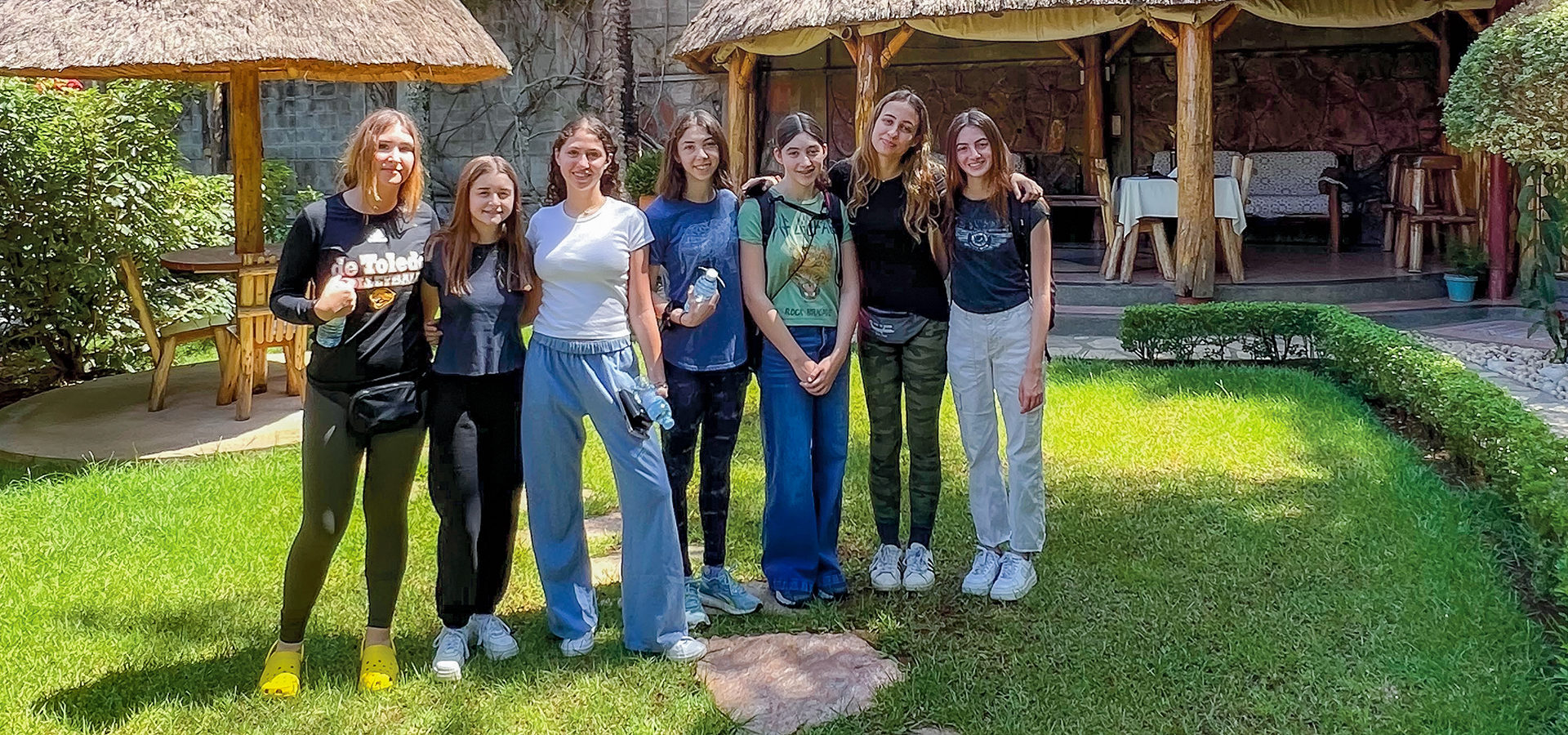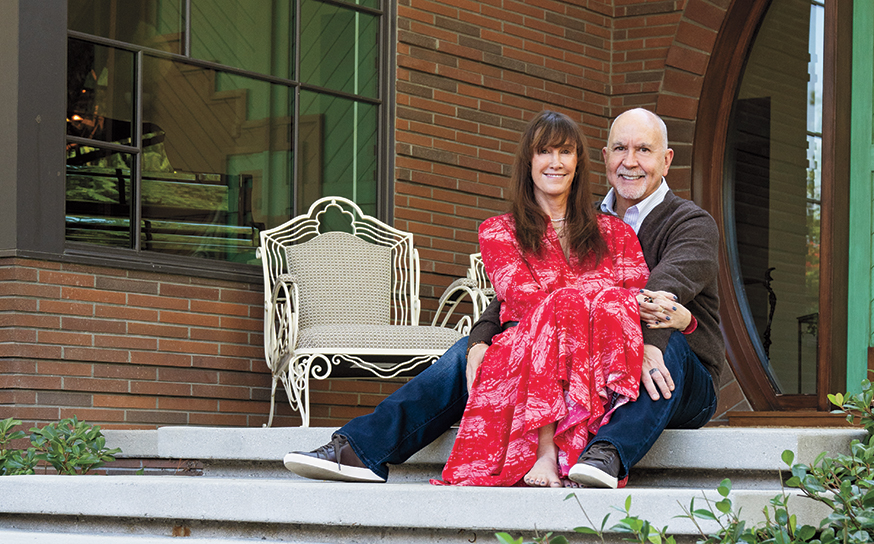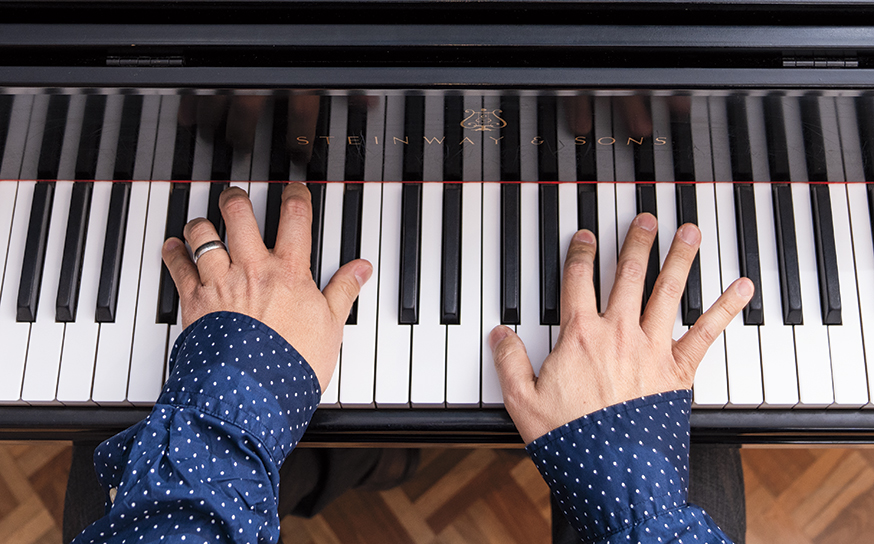A Group of De Toledo Students Embarks on a Mission to Uganda
Giving back.
-
CategoryPeople
-
Written byAnne M. Russell
When asked about her future career plans, Cece Nussbaum, a junior at de Toledo High School in West Hills, says, “I know I want to do something that’s impactful for other people globally—something humanitarian.” So when the opportunity to travel to Uganda last November to help students there cultivate the nutrient-rich cyanobacteria spirulina to combat malnutrition, she jumped at the chance.
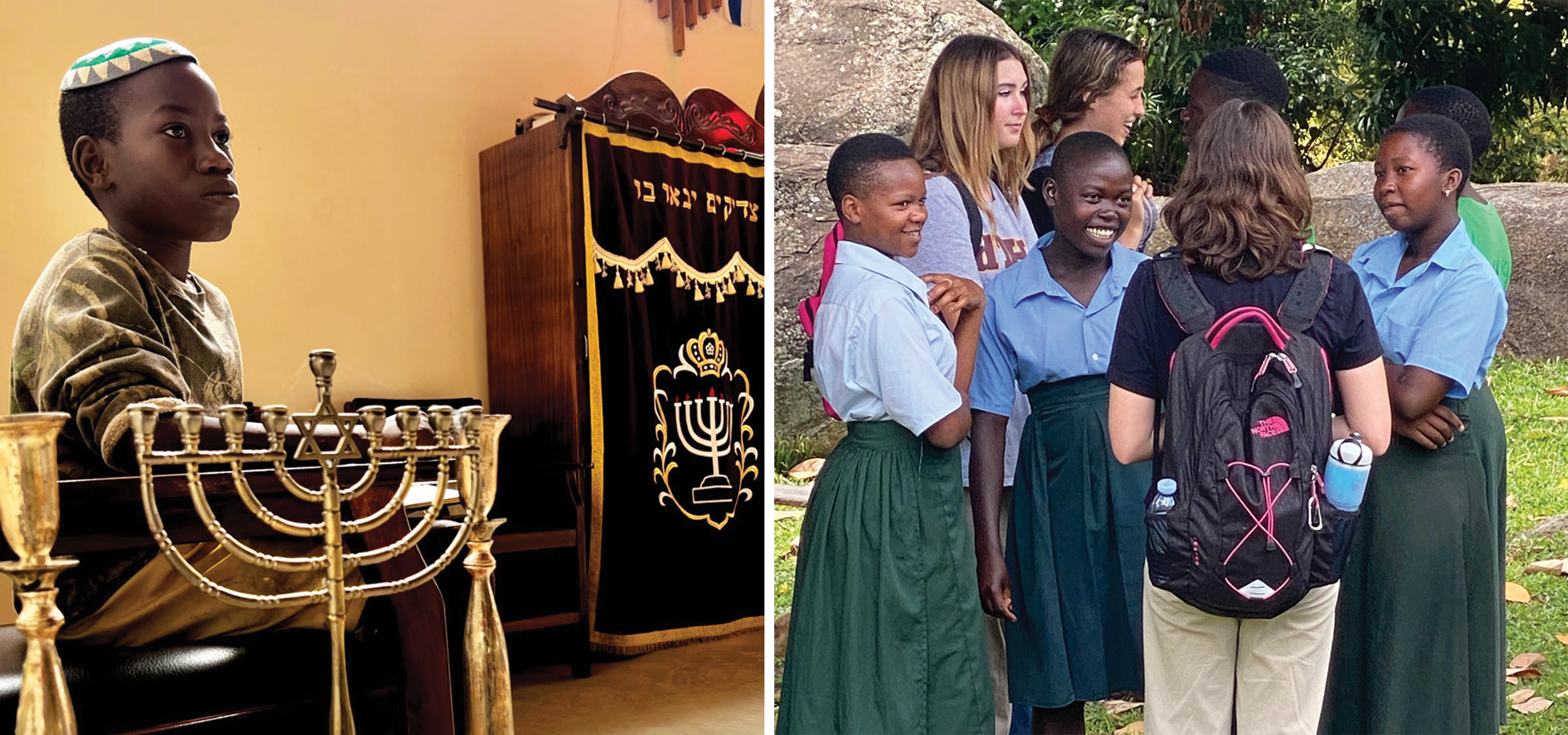
Above right: de Toldeo students chatting with some local girls
•••
The private school emphasizes the importance of “thoughtful acts of tikkun olam (world repair), and act(ing) with integrity, honesty, and wisdom.” Before the pandemic, the school had sent a group of high schoolers on a medical mission to Tanzania, and it often arranges student exchanges with other Jewish schools around the world.
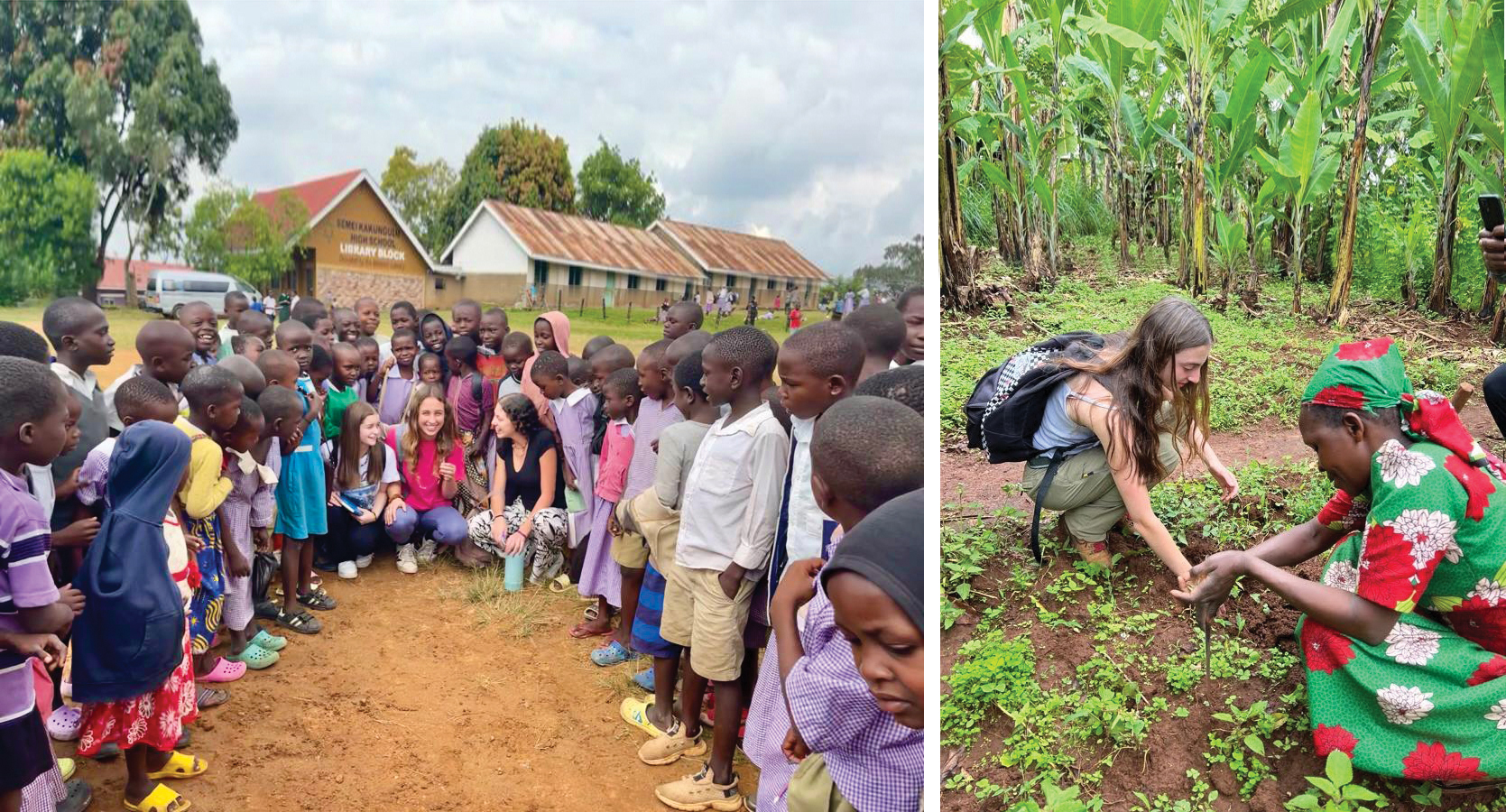
Above right: Cece Nussbaum
Cece and six other girls from de Toledo traveled to Mbale, Uganda, home to an isolated community of Jews. The teens were struck immediately by the contrast between the lives of the 2,000-member Jewish community there, known as the Abayudaya (“Children of Judah”), and what the young women experience at home.
“I give our girls so much credit for making a difference in the world.”
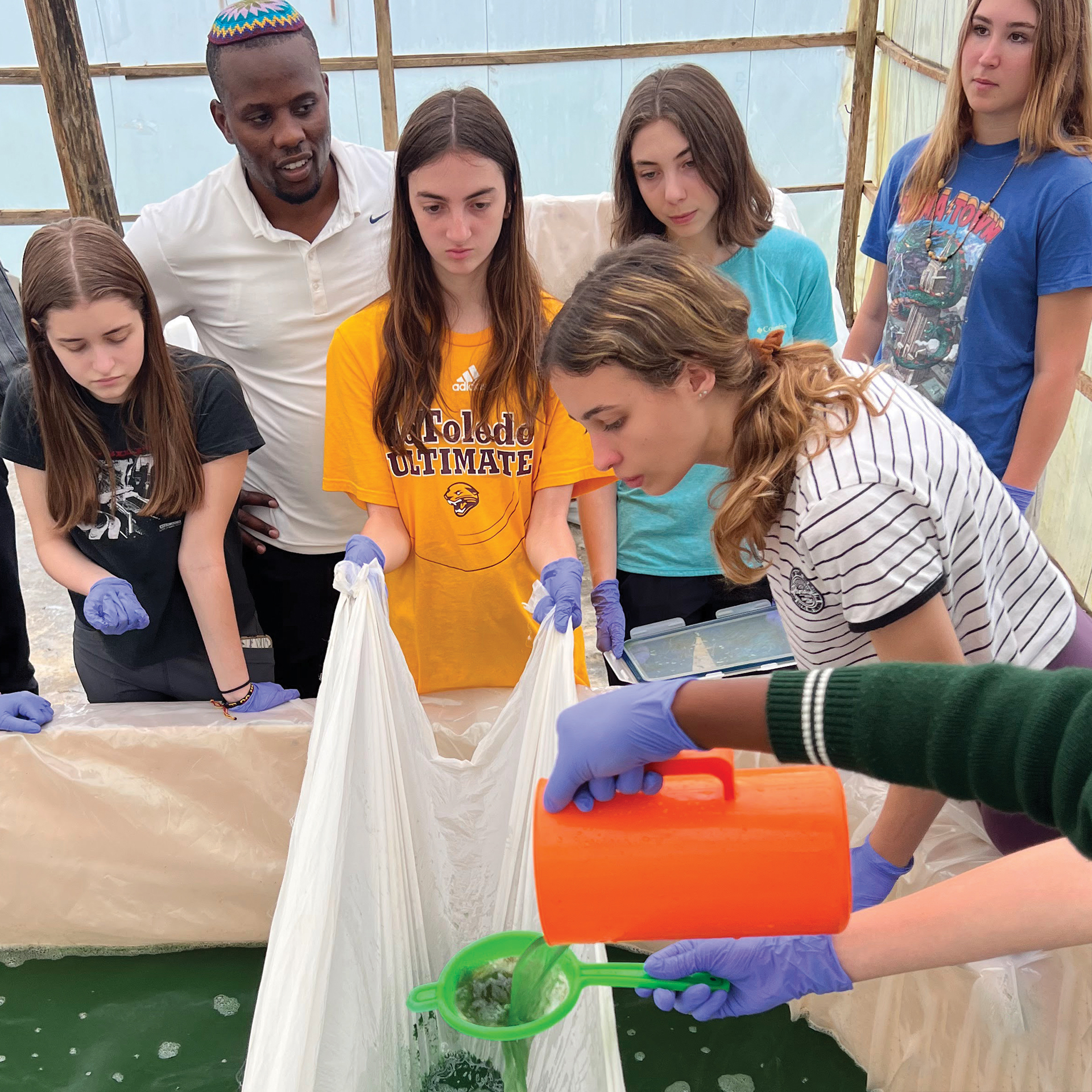
“I tried not to have any expectations,” Cece recalls, “but it was still shocking that poverty is the norm. They didn’t have running water or electricity. It’s made me not take anything for granted—just simple things like having food on the table at every meal.” Yolanda Hovsepian, chair of the science department, was one of two grown-ups on the trip. “It was eye-opening even for me as an adult,” she says.
The de Toledo teens confronted their first challenge before they even left the Valley, when they received word of an outbreak of Ebola in Uganda.
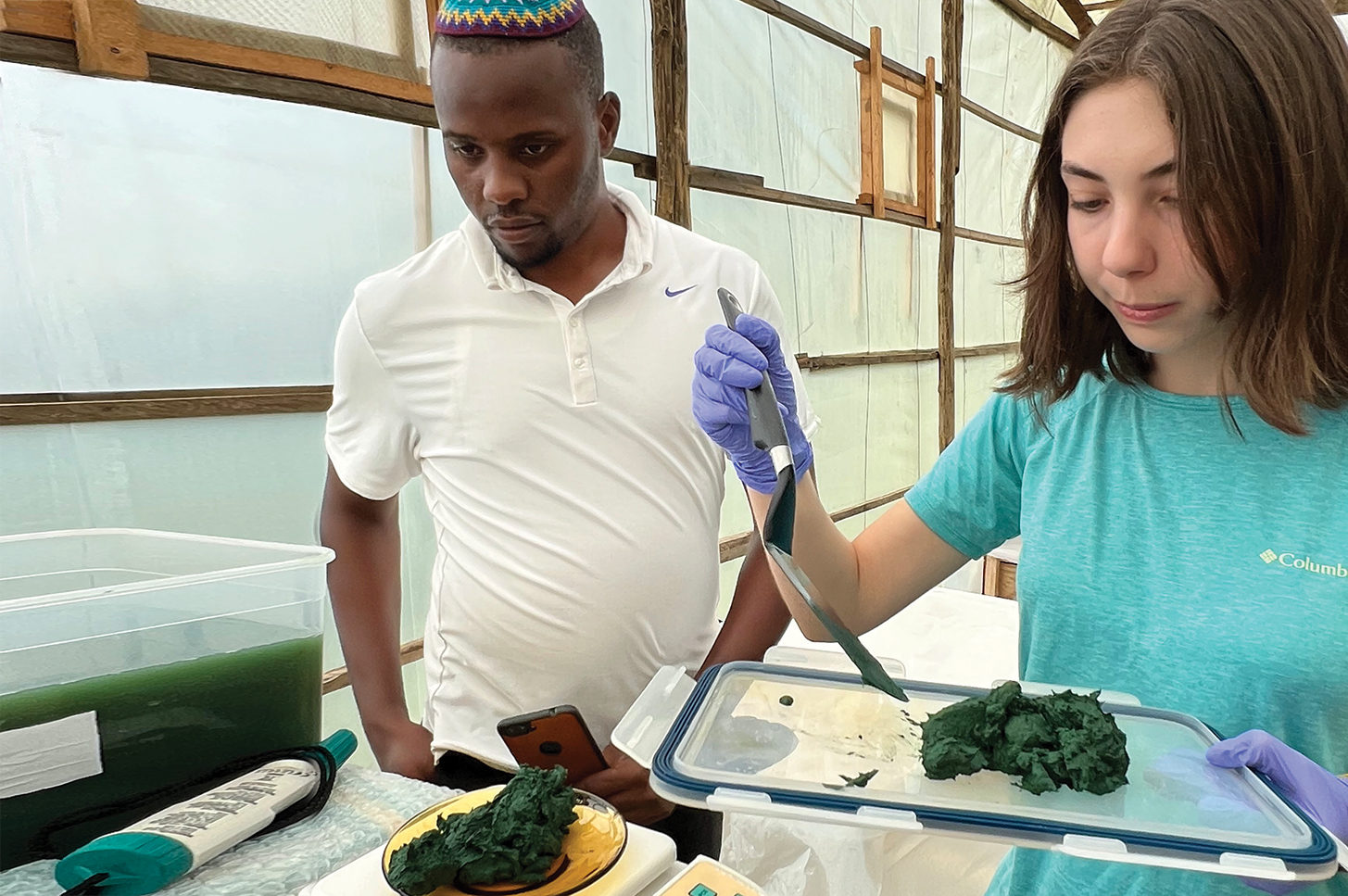
Sarai Golden-Krasner
“I give the seven sets of parents a lot of credit,” says head of school Mark Shpall. “Not one family backed out.” The participants, who ranged from sophomores to seniors, were Isabella Cohen, Sarai Golden-Krasner, Siena Guralnick, Eliana Harel, Madalyn Kasif, Nussbaum, and Kate Stutman. Lior Sibony, associate director of the school’s Global Jewish Education department, joined Yolanda Hovsepian as adult leaders of the trip.
Mbale lies near the Kenyan border and its economy is based on subsistence farming. The girls were visiting the drought-prone area to help peers there improve an already established program to cultivate nutrient-rich, algae-like spirulina. The cyanobacteria, which grows in greenhouse tanks and is a good source of protein, vitamins and minerals, can be used as a nutritional supplement when other food is scarce. For Americans, spirulina is a take-it-or-leave-it novelty superfood, but not for the Ugandan students. “To them, it’s super important to be able to grow it,” says Cece. “So they took it very, very seriously.”
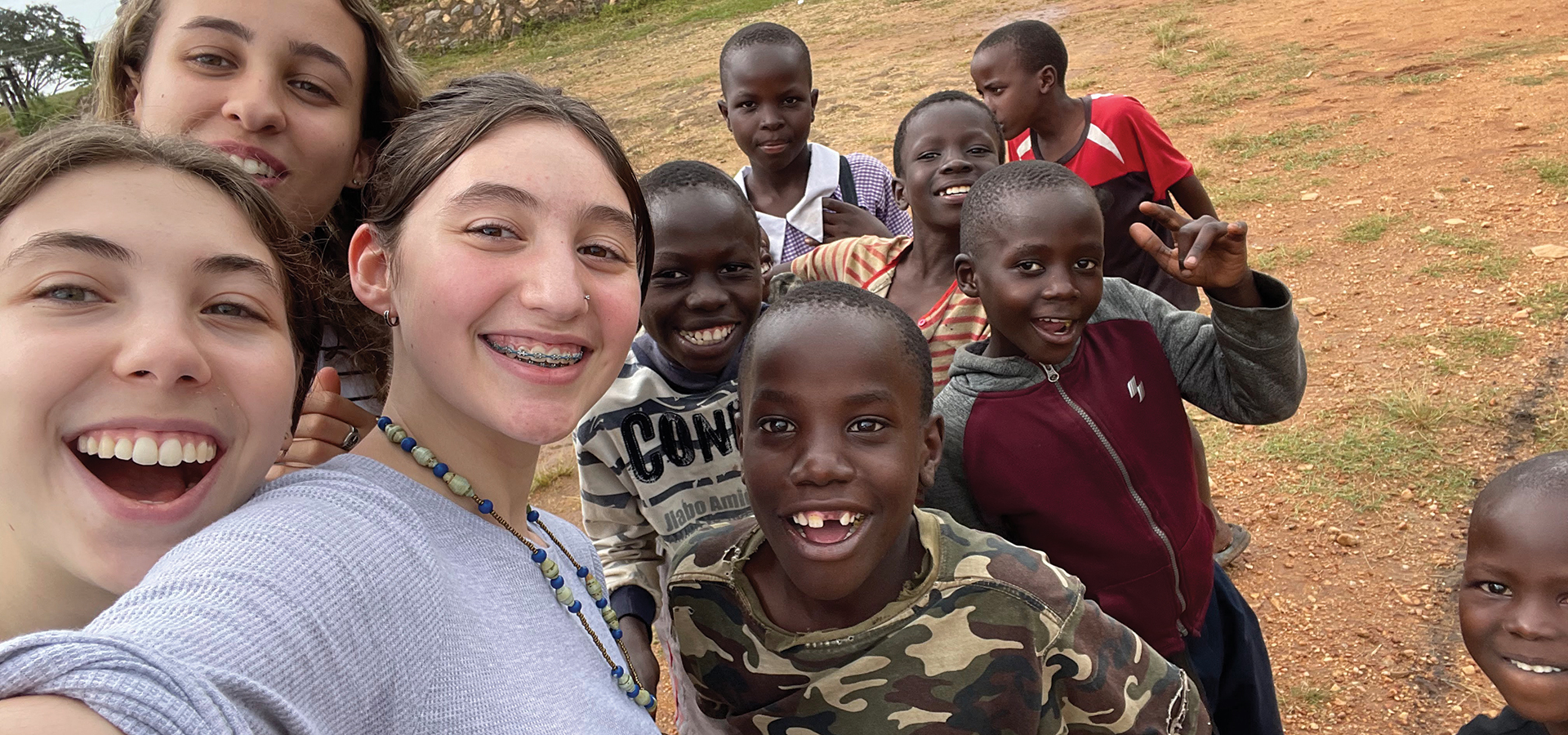
Above: Sarai Golden-Krasner, Eliana Harel and Madalyn Kasif take a selfie
•••
Science teacher Hovsepian leads de Toledo’s spirulina research program, an extracurricular effort that all the girls had participated in prior to the trip. “It was really nice working alongside students of our own age,” says sophomore Madalyn Kasif, who is considering becoming a marine biologist. “There was an openness. We had very real conversations.” (The Ugandan students speak Luganda as their first language, but most of them spoke English as well.) Madalyn adds that the students knew relatively little about their visitors’ daily lives in America: “One guy asked us how we farm at home,” she recalls.
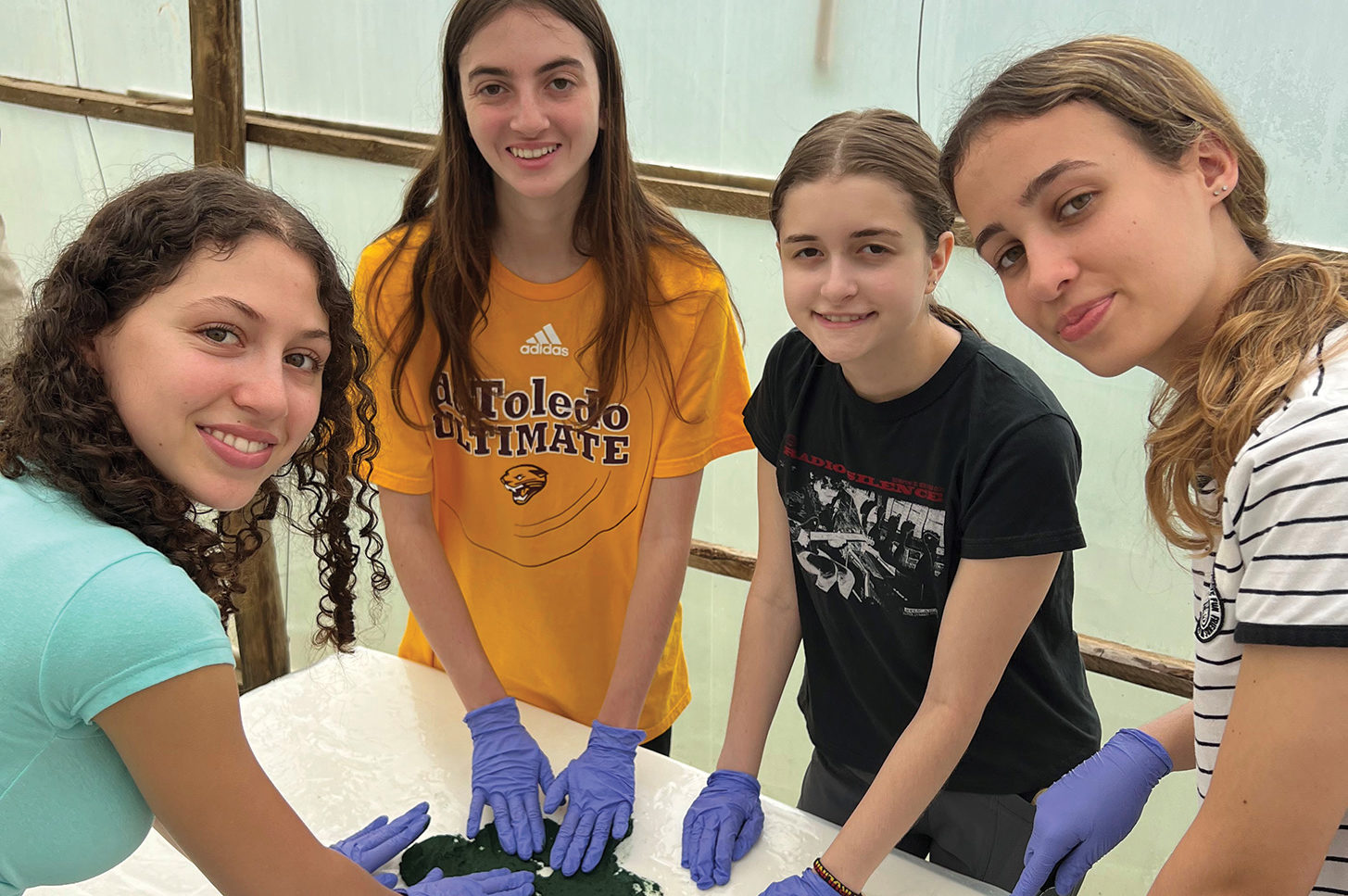
Siena Guralnick, Cece, Kate Stutman, Eliana.
The high schoolers’ time in Mbale spanned 10 days and included a Sabbath observance. When it came to Shabbat, the Americans and the Abayudaya were on common ground. “The basics were familiar,” says Cece. “They sing songs in Hebrew and read the Torah, but the rabbi will also talk in Luganda. There was a lot more music and singing.” Adds Siena Guralnick, a senior, “It was beautiful to have the same traditions. It felt very welcoming.”
Head of school Shpall describes the trip as eye-opening and life-altering. “I give our girls so much credit for making a difference in the world, and for being part of the community.” He says the school hopes to make the Uganda trip an annual or biannual event.
Join the Valley Community






